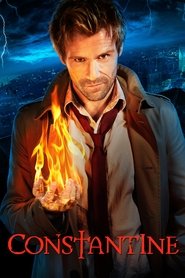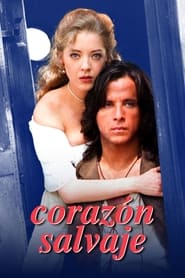Popular Drama TV Series on Pantaflix - Page 92
-
Sweet Diva
2019
Sweet Diva
2019
star 7.3Maria da Paz is a committed baker who becomes a wealthy businesswoman twenty years after a tragedy strikes on the day of her wedding to Amadeu. From this broken union a baby is born, Jô, who seeks power and despises her mother’s humble origins. Afraid that her parents’ reunion might spoil her plans, Jô starts an alliance with the charming Régis to convince Maria to marry him and, together, they plan to steal all of Maria’s fortune. In this exciting telenovela written by Emmy Awards winner Walcyr Carrasco, Maria’s optimism must be stronger than Jô’s ambition when the baker finds out about the betrayal and her own daughter’s dangerous secrets. -
Vega$
1978
Vega$
1978
star 7Vega$ is an American detective television drama series that aired on ABC between 1978 and 1981. It was produced by Aaron Spelling. The series was filmed in its entirety in Las Vegas, Nevada. It is believed to be the first television series produced entirely in Las Vegas. The show stars Robert Urich as private detective Dan Tanna, who drove around the streets of Las Vegas in a red 1957 Ford Thunderbird solving crimes and making Las Vegas a better place for residents and tourists alike. -
thirtysomething
1987
thirtysomething
1987
star 6.2Thirtysomething is an American television drama about a group of baby boomers in their late thirties. It was created by Marshall Herskovitz and Edward Zwick for MGM/UA Television Group and The Bedford Falls Company, and aired on ABC. It premiered in the U.S. on September 29, 1987. It lasted four seasons, with the last of its 85 episodes airing on May 28, 1991. The title of the show was designed as thirtysomething by Kathie Broyles, who combined the words of the original title, Thirty Something. In 1997, "The Go Between" and "Samurai Ad Man" were ranked #22 on TV Guide′s 100 Greatest Episodes of All Time. In 2002, Thirtysomething was ranked #19 on TV Guide′s 50 Greatest TV Shows of All Time, and in 2013 TV Guide ranked it #10 in its list of The 60 Greatest Dramas of All Time. -
Falling Into Your Smile
2021
star 8After joining an all-male e-sports team, an amateur gamer tests her skills and leads her team to the world championships. -
Constantine
2014
Constantine
2014
star 7.8A man struggling with his faith is haunted by the sins of his past but is suddenly thrust into the role of defending humanity from the gathering forces of darkness. -
Mulheres Apaixonadas
2003
Mulheres Apaixonadas
2003
star 6.1The series surrounds the damaged relationship between a saxophonist and a woman who falls in love for a former boyfriend, whom she had left to marry him. -
Eight Is Enough
1977
Eight Is Enough
1977
star 6.1Eight Is Enough is an American television comedy-drama series that ran on ABC from March 15, 1977, until August 29, 1981. The show was modeled after syndicated newspaper columnist Thomas Braden, a real-life parent with eight children, who wrote a book with the same name. -
Seize the Day
2009
Seize the Day
2009
star 5.6Helena and Luciana are two supermodels with completely opposite personalities: the first is stormy and spoiled, while the second - being older - is patient and restrained. Their fate changes when Helena becomes involved with Marcos, Luciana's father, an older man recently divorced from a former model, Tereza, who does not accept the end of the marriage. -
The Gold
2023
The Gold
2023
star 7.3On 26 November 1983, six armed men break into the Brink's-Mat security depot, stumbling across gold bullion worth £26m. -
All Elite Wrestling: Collision
2023
star 7.7An in-ring show featuring more wrestlers, more stories and more action to super-serve fans. -
Extant
2014
Extant
2014
star 6.3An astronaut returns home from a year long solo mission in space. She tries to reconnect with her husband and son in their everyday life. Her experiences in space and home lead to events that ultimately will change the course of human history. -
NCIS: Hawaiʻi
2021
NCIS: Hawaiʻi
2021
star 7.7Jane Tennant, the first female Special Agent in Charge of NCIS Pearl Harbor, and her unwavering team of specialists balance duty to family and country while investigating high-stakes crimes involving military personnel, national security and the mysteries of the sun-drenched island paradise itself. -
Corazón salvaje
1992
Corazón salvaje
1992
star 7.9A telenovela that dramatizes the romances and rivalries between two brothers and two sisters in Mexico between the years 1885 and 1900. -
Newtopia
2025
Newtopia
2025
star 7.9Jae-yoon, a late military enlistee, and his girlfriend, Young-joo, break up over the phone over growing misunderstandings. But a zombie outbreak rocks the world. A national emergency is declared, a plane crashes in the city center, and Jae-yoon and his unit get trapped on top of a Seoul skyscraper. Young-joo risks the zombie-filled streets to find him. Can their love survive the apocalypse? -
Dona de Mim
2025
-
Brother-in-Laws
2020
Brother-in-Laws
2020
star 10Aliyans (Brother-in-Laws) is a hit Malayalam sitcom on Kaumudy TV, directed by Rajesh Thalachira. It premiered on February 24, 2020, as a sequel to Aliyan vs Aliyan (Brother-in-Law vs Brother-in-Law). Set in Thiruvananthapuram, the show follows Ratnamma and her family, centering on the love-hate dynamic between brothers-in-law Kanakan and Cleatus. Most episodes revolve around Cleatus landing in trouble thanks to his quirky ideas, with Kanakan often stepping in to save the day. -
Undressed
1999
Undressed
1999
star 7A peek behind closed doors at the intricacies of modern relationships. Each episode features three different fictional stories and follows various characters to see what happened during their most intimate moments. No subject is too taboo. All the stories have one very important thing in common, though: someone inevitably gets undressed. -
Family Law
2021
Family Law
2021
star 7.3Lawyer and recovering alcoholic Abigail Bianchi is struggling to put her career and family back together after hitting rock bottom. As a condition of her probation, Abby is forced to work at her estranged father’s firm, Svensson and Associates, and practice in family law for the first time while forging new relationships with the half-brother and half-sister whom she’s never met. The result is a dysfunctional family law firm operating to help other families with their own dysfunctions. -
Bright As the Moon
2021
Bright As the Moon
2021
star 7To avoid an unwanted imperial marriage, Yun Qianyue hides behind scandalous rumors and lives in disguise, secretly devoted to the ailing Rong Jing. When she risks everything to cure him, she draws the dangerous obsession of Emperor Ye Qingran, who poisons her to keep her by his side. Even stripped of her memories, Qianyue fights against imperial control as her heart refuses to forget her true love. -
Greenleaf
2016
Greenleaf
2016
star 7The unscrupulous world of the Greenleaf family and their sprawling Memphis megachurch, where scandalous secrets and lies are as numerous as the faithful. Born of the church, the Greenleaf family love and care for each other, but beneath the surface lies a den of iniquity—greed, adultery, sibling rivalry and conflicting values—that threatens to tear apart the very core of their faith that holds them together.
 Netflix
Netflix
 Amazon Prime Video
Amazon Prime Video
 Apple iTunes
Apple iTunes
 Apple TV Plus
Apple TV Plus
 Disney Plus
Disney Plus
 Google Play Movies
Google Play Movies
 Paramount Plus
Paramount Plus
 Hulu
Hulu
 HBO Max
HBO Max
 YouTube
YouTube
 fuboTV
fuboTV
 Peacock
Peacock
 Peacock Premium
Peacock Premium
 Amazon Video
Amazon Video
 The Roku Channel
The Roku Channel
 AMC+
AMC+
 Kocowa
Kocowa
 Hoopla
Hoopla
 The CW
The CW
 Vudu
Vudu
 Starz
Starz
 Showtime
Showtime
 PBS
PBS
 Pantaflix
Pantaflix
 FXNow
FXNow
 Tubi TV
Tubi TV
 Kanopy
Kanopy
 Comedy Central
Comedy Central
 Crunchyroll
Crunchyroll
 Microsoft Store
Microsoft Store
 Redbox
Redbox
 Sun Nxt
Sun Nxt
 ABC
ABC
 DIRECTV
DIRECTV
 Crackle
Crackle
 Fandor
Fandor
 Plex
Plex



















